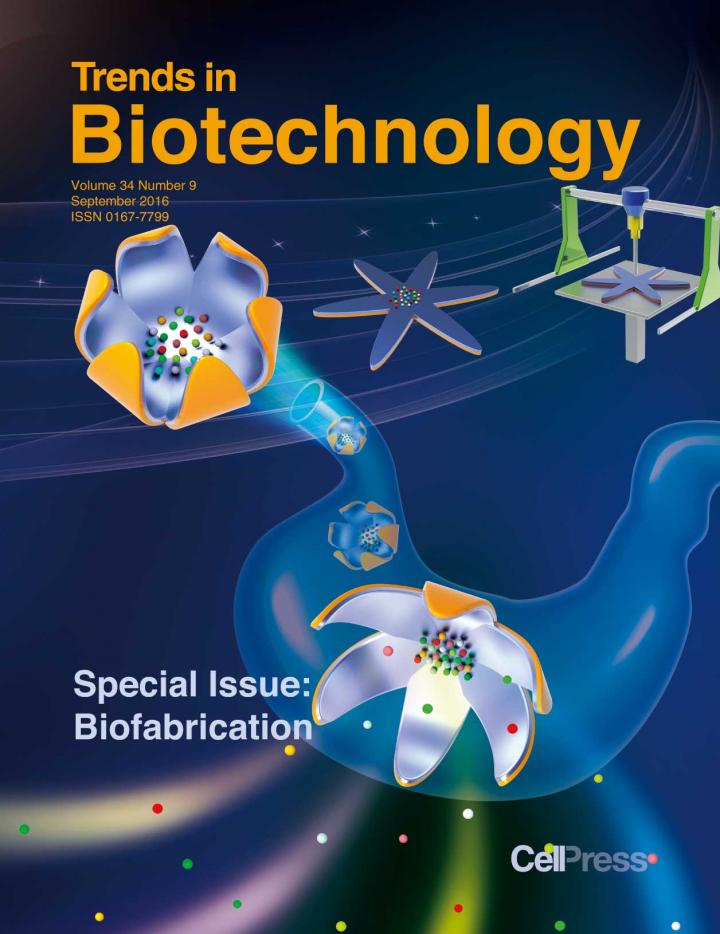水基木质纤维素生物炼制过程中木质素的增值。
IF 14.3
1区 工程技术
Q1 BIOTECHNOLOGY & APPLIED MICROBIOLOGY
Trends in biotechnology
Pub Date : 2024-11-01
Epub Date: 2024-08-10
DOI:10.1016/j.tibtech.2024.07.004
引用次数: 0
摘要
当木质纤维素生物质在生物精炼厂加工成纤维、糖、生物燃料和生物产品时,每年将产生额外的 1 亿吨木质素副产品。这将使制浆和造纸过程中已经产生的木质素数量翻倍。与制浆产生的木质素磺酸盐(占总量的 88%)或牛皮纸木质素(占总量的 9%)不同,水基生物精炼会留下非磺化木质素和芳香分子。这种新型木质素为大量农业用途提供了机会,例如用作控释载体和土壤改良剂,以及作为新化学的原料,为化学工业提供分子构件和可持续航空生物燃料的前体。本文章由计算机程序翻译,如有差异,请以英文原文为准。
Valorization of lignin from aqueous-based lignocellulosic biorefineries.
An additional 100 million tons/year of lignin coproduct will result when lignocellulosic biomass is processed in biorefineries to fiber, sugars, biofuels, and bioproducts. This will double the amount of lignin already generated from pulping and paper production. Unlike pulping that results in lignosulphonate (88% of total) or Kraft lignin (9%), aqueous-based biorefining leaves behind non-sulfonated lignin and aromatic molecules. This new type of lignin provides opportunities for large volume agricultural uses such as controlled-release carriers and soil amendments as well as feedstocks for new chemistries that lead to molecular building blocks for the chemical industry and to precursors for sustainable aviation biofuels.
求助全文
通过发布文献求助,成功后即可免费获取论文全文。
去求助
来源期刊

Trends in biotechnology
工程技术-生物工程与应用微生物
CiteScore
28.60
自引率
1.20%
发文量
198
审稿时长
1 months
期刊介绍:
Trends in Biotechnology publishes reviews and perspectives on the applied biological sciences, focusing on useful science applied to, derived from, or inspired by living systems.
The major themes that TIBTECH is interested in include:
Bioprocessing (biochemical engineering, applied enzymology, industrial biotechnology, biofuels, metabolic engineering)
Omics (genome editing, single-cell technologies, bioinformatics, synthetic biology)
Materials and devices (bionanotechnology, biomaterials, diagnostics/imaging/detection, soft robotics, biosensors/bioelectronics)
Therapeutics (biofabrication, stem cells, tissue engineering and regenerative medicine, antibodies and other protein drugs, drug delivery)
Agroenvironment (environmental engineering, bioremediation, genetically modified crops, sustainable development).
 求助内容:
求助内容: 应助结果提醒方式:
应助结果提醒方式:


